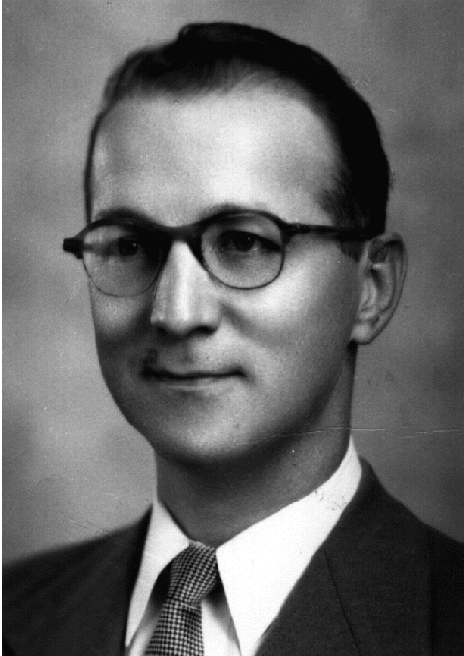 |
| John Joseph Lindorfer III December 1, 1915 - August 10, 2002 |
|---|
 |
| John Joseph Lindorfer III December 1, 1915 - August 10, 2002 |
|---|
My father saved my life in Vietnam.
When my father was eight years old, my paternal grandfather died. Shortly thereafter, my paternal Aunt Grace lost her sight. For reasons best known to them alone, my grandfather's nominal Catholic relatives had severed family ties with him when he married a Lutheran girl who had never graduated from grade school. My young widowed grandmother, alone in a hostile, uncaring family, found it impossible to care adequately for both children herself, so she sent her son to live with a friendly Amish family in the Amana Colonies in Iowa. At the age of eight, my father ceased being a cherished child and became instead an employee farmer. He never recovered from the belief that he had been "given away!"
To the end of his days, my father complained that the problem with children was that they didn't come with instructions. This was doubly hard for my parents, for both my father and my orphaned mother became parents without the benefit of the apprenticeship of having been raised as children by parents of their own.
So my father brought to his parenting skills the principles he had learned as an employee in an Amish community: the necessity of hard work, of reliability, of honesty, of being true to your word.
During World War II, he worked in a critical civilian occupation for the Feltex corporation in Moline, Illinois. Feltex made artillery ammunition containers; round tubular boxes made of tarpaper, and packed the ammunition in them. My father inspected the final product to make sure the containers were properly sealed so moisture wouldn't get in and ruin the gunpowder.
A quarter century later, I was stationed in Pleiku, Vietnam, next to an artillery battery that fired over our heads during the night. As some of you older folks may recall, there was a concern in Vietnam about "short rounds," defective World War II artillery ammunition that caused the projectiles to land prematurely. In my case, a short round would have blown me to bits!
One day, I was visiting the battery commander to discuss coordinating our defensive tactics. As he showed me around his unit, I noticed a large pile of round tarpaper tubes neatly stacked next to the gun emplacements. On closer inspection, I noticed the stencil, "Packed by the Feltex Corporation," and underneath, "Inspected by JJL." - John Joseph Lindorfer, my father.
I knew then that I had nothing to fear from short rounds. That ammunition was as fresh as the day it was packed, a quarter century earlier, for I knew, with absolute certainty, that the containers were good, that my father had done his job well.
As a condition of allowing him to marry my Catholic convert mom, the Catholic Church extracted a promise from my father that he would not "interfere" in the religious upbringing of her children. To my mother, this meant not involving my father in religion at all, for he never went to church voluntarily, and believed that God needed neither our faith nor our worship. He believed that the essence of being a good Christian was to be a good Amish man; to work hard, to serve God by being honest and reliable and true to your word, of always doing what you believed to be right, and never surrendering to what you knew to be wrong. He couldn't understand why we went to confession, Once I overheard him talking to my mom about it. "If you're going to be sorry about it," he asked, "why do it in the first place?"
My father must have found it hard to keep silent about right and wrong, because he realized that being a man involved theology, ethics and morality that went far beyond that learned from the Baltimore Catechism by a 14-year-old orphan schoolgirl. A lesser man might have broken his promise, but not my father. It was only in preparing for these remarks that I realized that my father had cleverly found a way to keep his promise and at the same time impart to me his own sense of duty and obligation to God, for he insisted that I become a Boy Scout, and drilled into me that a Scout is trustworthy, loyal, helpful, friendly, courteous, kind, obedient, cheerful, thrifty, brave, clean and reverent - all qualities he considered to be essential to Christian manhood.
Way to go, Dad!
What a wonderful world this would be if all men were like my father. There would be no labor disputes, for every worker would put in an honest day's work, and each employer would pay a fair day's pay. There wouldn't be any divorces, no questions about child support, no betrayals of trust, no Enron scandal or Arthur Anderson indictments or people losing their life savings because Xerox or Worldcom lied about their earnings. Nobody would be facing bankruptcy because he bought a house he couldn't afford. Nobody would be on welfare! You could depend on your neighbor, and he would know he could depend on you, and God could depend on both of you to keep your word and do His will and pay your way and earn your keep!
The last thing I said to my father, when I realized I would probably never see him again in this life, was that he had been a good father, far above average, and that this world is a better place because he was in it.
And it is, perhaps, a poorer place, now that he is gone.